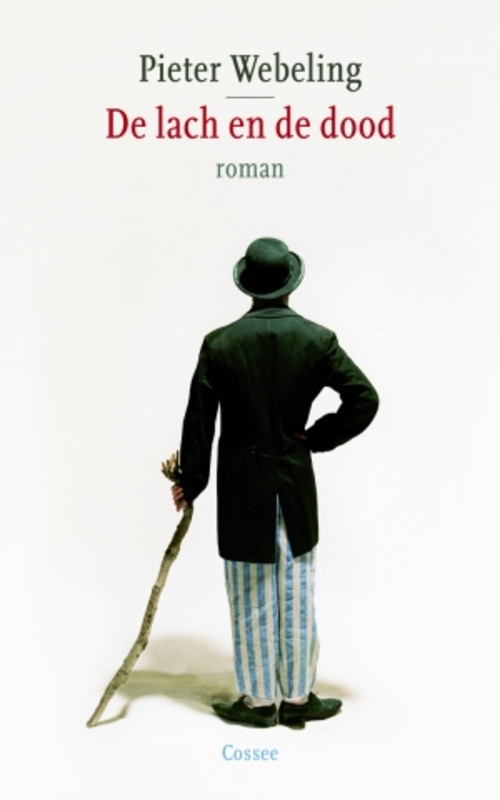
When the legendary Jewish comedian Earnest Hofman (‘No humor without being Earnest’) is deported to a camp in Poland in February 1944, his skills become a way to survive. His beloved Helena is in the women’s camp and in exchange for the delivery of love letters – written on paper from bags of cement – he tells his fellow inmates jokes for fifteen minutes every day.
This doesn’t go unnoticed. The camp commandant asks him to perform for the Germans. Hofman refuses, even if being an SS-comedian would give him access to a good supply of food. But then he realizes that his performances could save Helena who is seriously ill. Behind the curtains for his first show he hears the German audience sing Wenn das Judenblut vom Messer spritzt. How is he going to entertain the enemy in this highly charged atmosphere?
Pieter Webeling questions how we make moral decisions. Humor is a weapon of survival, but how far can you go? What happens to humor when it is balanced with the most weighty matters? Can a joke save lives when death is near? When Earnest prepares his comeback in a large Amsterdam theatre in 1946, he realizes that the greatest misery can produce the biggest laughter. But can he use these jokes?
‘An impressive story about war and humor. Laughing to keep from going insane. Humor is literally a matter of life or death’
– Marijntje Gerling in Nederlands Dagblad
‘Webeling is most convincing in his descriptions of the horrors of the camp. These raw views of reality are very lifelike and sobering’
– Tom Steendam on Recensieweb.nl ***
‘Pieter Webeling’s The Book of Laughter and Death is a strikingly novel, one color in the mosaic of war stories. His choice for a comedian as a protagonist is a very successful way to describe a period in which laughter and death went hand in hand’ – Inkt Magazine ***
‘Webeling’s The Book of Laughter and Death is one of the most frightful and one of the most beautiful books I have ever read. Terrible for the horrifying and disgusting events that are described and beautiful because of the way that these events have been described. You are right in the middle of all the horrors and you truly see it all. It is so incredibly clearly written that you really hear, see, feel, taste and smell it all. Fortunately the humor in the book ensures that it is not all horrible. […] The Book of Laughter and Death is an impressive novel in which the most gruesome paragraphs are also the best parts of the book. The combination of reality and fiction make the book a true page turner you read in one breath. It is a deep, beautiful and horrifying story in which all emotions are represented and complimented with a lot of humor. It brings you laughter and tears. It is a book with a soul’ – Ella-Milou Quist in Literair Nederland
‘Webeling seeks boundaries which few witnesses talk about. His prose is a pleasure’ – de Volkskrant
‘The Book of Laughter and Death is not a heavy book, but a touching narration on how laughter can comfort and offer love in hard times’ – JAN Magazine
‘Humor as savior in the deepest of the hell. A thrillingly beautiful book’
– Dutch stand-up comedian Youp van ‘t Hek
‘This novel is as sharp as it is truthful in describing the moral dilemmas of a camp prisoner’ – Holocaust and Genocide studies Prof. Dr. J. Th. M. Houwink Ten Cate
‘Daily life in a concentration camp is described so vividly and honestly in The Book of Laughter and Death that I can recommend it unreservedly. I greatly admire the writer’ - Auschwitz survivor Robert Cohen, camp number 174708